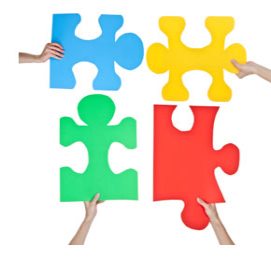|
Symptoms Of Mild Autism And How To Deal With ItWhat are typical symptoms of mild autism in children and adults? Forty years ago, autism was a relatively unknown syndrome used to describe children who couldn’t interact with others and exhibited repetitive behaviors that seemed to display they were in distress.  Today, however, there’s a broader view of autism, which includes mild autism and mild Asperger Syndrome and there is more knowledge of identifying the symptoms of mild autism. This may account for some of the increase in the number of cases from less than three cases per 10,000 children in the 1970s to one case of autism per 88 children in 2011. Regardless of the cause of the increase, identifying the problem early can aid children and bring stress relief to adults by helping them cope with the condition. Common Symptoms of AutismSocial interaction -or should we say the difficulty with social interaction- is often one of the first observations made by parents of autistic children. However, difficulty with nonverbal communication is also another one. The autistic child may also have limited interest in playing or other activities normally enjoyed by children. While the severity of these problems varies, depending on the level of autism, they occur with all types of autism, even those who are high functioning. One method of identifying difficulties with social interaction is to check the nonverbal communication. Often body posture or facial expressions don’t match the message delivered by the autistic child or adult. There’s often either too prolonged eye-to-eye contact or none at all. The child or adult finds it difficult to establish friends of the same age and part of the reason is the lack of interest in other people’s activities, joys or achievements. In fact, many autistic children and adults seem to lack cognitive empathy for others when the person expresses emotions such as sorrow, pain or devastation. The lack of cognitive empathy is genuine since many autistic people often can’t understand the depth of the other person’s feelings. Symptoms of difficulty with verbal and non-verbal communication may show up very early in life. There may be a delay in their ability to speak. For those with severe autism, as many of forty percent of the victims never learn speech. Autistic people also are socially awkward and find it difficult to strike up a conversation or continue with one. When engaged in conversation, they may repeat the same phrase heard previously, continuously. Like Bones, on the television program “Bones,” the autistic person may not understand humor and interpret the conversation on the literal meaning rather than the implied humor level. The autistic person may focus on parts rather than a whole. If it’s a young child playing with a car, they may find fascination with the hood of the car or the wheels. The autistic person may carry that segmented fascination even further by focusing on one specific area with an exclusion of others, such as only focusing on video games or license plates. Avid collectors of one type of item, who work, live and breathe their collectible item, may have a mild form of autism. The autistic child or adult may have an excessively good memory when it comes to certain things, in fact, it may almost be savant-like. They may prefer the concrete rather than abstract concepts and have difficulty seeing the whole picture of any situation. Routine behavior is also important to the autistic child or adult. It becomes stressful if something as simple as changing the path to work occurs. While symptoms of mild autism may not include the body rocking or hand flapping behavior of those with severe autism, often there’s a stress relief behavior more socially acceptable the milder cases exhibit. How to Identify Symptoms of Mild AutismThe autism Spectrum disorder (ASD) occurs five times more frequently in boys than it does in girls. It also tends to be genetic and run in families. In addition to the other symptoms of autism, a few more might aid you in identifying those with mild autism. You may already know the person that you want to disown because they come up with a very inappropriate observation in social situations or speak excessively loud when a soft voice is appropriate. You may admire them for their large vocabulary but never want them to drive because they don’t follow verbal directions well and frequently get confused. Symptoms of mild autism also may include perfectionism, difficulty expressing feelings and inappropriate reactions to emotions such as anger or pain. They probably won’t be a great athlete since both fine and gross motor skills are often impaired. You may find that some of the adults will tell about reading all the psychology books in the library before the age of ten, but still find it difficult to tie their shoelaces or use a revolving door. Other symptoms of mild autism may include a fascination with rotation, obsessing over ideas, objects or emotions, compulsions to repeat specific acts or an inability to change from one activity to another. The same holds true for emotions. Once the autistic child or adult sets the mood for the day, you or they can do little to change it. The autistic child or adult may be excessively sensitive to light, sound, pain, touch, or lack any sensitivity to the point they aren’t aware they’re injured. They main even crave certain types of sensory stimulation or even require food be put on a plate in a specific aesthetically pleasing manner. Types of AutismClassical autism focuses primarily on difficulty with social issues and relationships. There are also problems with verbal skills in classical autism. Asperger Syndrome is probably one of the most common forms of mild autism. An obsession over routine or objects is one identifying quality, as is the difficulty with emotional empathy. Rhett Syndrome comes from a mutation of a gene and causes scoliosis and learning difficulties. While autism in general affects more boys than girls, Rhett Syndrome affects more girls than boys and often includes difficulty with motor skills. Comfort Skills and Symptoms of Mild AutismThose with mild autism have often more erratic neurological functions and may have difficulty paying attention or irregular sleep patterns. Time concepts are difficult for them too. In response to these items and other frustrations, there are often a set of comfort skills the autistic child or adult uses for stress relief. Children find stuffed animals, blankets or toys as a relief. Even adults may have a special object that brings them comfort. Minor motor stimulations such as tapping fingers or making the tips go in circles, humming or rocking can also bring stress relief. Learning to meditate can be an effort for some people, still it provides several proven benefits to cope with stress on both short and long term. Sometimes the best way to bring stress relief is to offer the autistic child or adult a familiar and tranquil space to decompress. Knowing YourselfRecognizing what the symptoms of mild autism are can aid you in dealing with both children and adults with these challenges. It’s far easier to understand the resulting behavior when you know something about the underlying processes. It becomes manageable. The individual with symptoms of mild autism can also better monitor their behavior and find less stress in many situations when they understand what is going on, observed from a wider and deeper perspective. In that way, stress relief can be a pro-active strategy which can be learned and trained in the best circumstances to prepare for the daily challenges of life. The expression from the ancient Greeks: "know thy self" is still a wise advice to take. Even more if some extra challenge, like mild autism is involved. People with mild autism can live a full and happy lives if they learn how to balance their proper dynamics with the wider reality they live in. From Symptoms Of Mild Autism to the Stress Relief Resources home page
|




